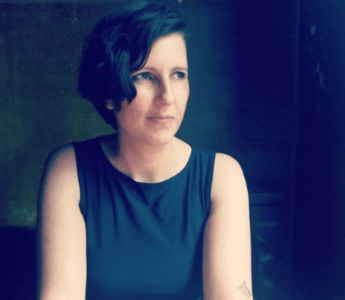
McKinley Valentine grew up in a tiny copper-mining town on the edge of the Australian desert, and has established herself as a pioneering voice in what’s been called the ‘golden age of newsletters’. She is the writer of a cult-hit newsletter, The Whippet, and produces newsletters for design studio Paper Giant and board game company Jellybean Games. She regularly consults with creators to give strategic guidance on balancing growth while staying true to their voice.
Ahead of her upcoming workshop, Developing Your Newsletter, our Marketing and Communications Officer, Sarah Giles, sat down with McKinley for a deep dive into the world of newsletters.
Since 2017, you have been publishing a fortnightly newsletter, The Whippet, covering topics from science to history to interpersonal dilemmas and much more. How do you decide what to write about?
The longer I’ve done this, the more I’ve learned to trust my initial emotional response to something. It doesn’t have to be a big emotion, tears or laughter. Curiosity is an emotion, the pull to learn more. The urge to tell someone else the thing you just learned is an emotion. So is the ‘Aha!’ feeling you get when you connect some dots.
If you care about it, someone else will. Besides: you can’t read minds, so if you try and guess what other people care about, you’ll get it wrong AND you’ll be stuck writing about topics you’re not interested in.
Do you ever find yourself stuck for inspiration and, if so, how to you overcome it?
The other one is not noticing when you’ve been interested or excited about an idea. Jessica Abel’s golden advice is ‘pay attention to your attention.’ You might come across a dozen things to write about but if you didn’t notice your own emotional response, they slip away.
A useful hack here is to rope in a friend or partner: ask them to point out when you start talking about something with passion (and then put in a note in your phone when they do).
Another risk is letting myself get completely hijacked by the news cycle (since I don’t write about the news cycle). It’s completely possible to realise “oh I’ve gone a whole week consuming nothing but information I can’t use and also feel depressed about.” Not that the news cycle isn’t important, but it can’t be the totality of your consumption, or you’ll be an empty tank when it comes time to write.
Newsletters were far less common when you started publishing The Whippet, what advice would you share with folks who want their newsletter to stand out?
I know it’s a cliche, but voice. The world is drowning in information, and you are not going to out-compete the big news aggregators. But what they lack is a distinctive voice, because they’re trying to appeal to as big an audience as possible.
Look for all the things you might normally edit out to make your writing more accessible: maybe those are the things you should be focusing on! You’re much more at risk of going too broad than too niche.
How to you manage (and acquire) your diverse areas of work?
A surprising amount of it has come via my newsletter. I’m now a question-writer for the TV show Hard Quiz, and that opportunity came up solely because someone at ABC read The Whippet and went ‘it seems like this is in your wheelhouse, do you want to try out?’
The best way to show people what you can do is to do it.
Also, this will sound obvious, but I tell people that I’m a writer/editor, etc. and that I’m looking for writing work. You’d be amazed how many writers keep that close to their chests.
No spoilers, but what can folks expect from your upcoming workshop on Developing Your Newsletter with Writers Victoria?
For a lot of authors, a newsletter is a marketing tool, rather than their main creative output. So they don’t want to spend too much time on it. But if it doesn’t have something in it that hooks readers, it won’t do its job of building an audience.
So there’ll be a focus on creating what you could call your Minimum Viable Newsletter, and getting extra use out of the reading and writing you already do, rather than treating the newsletter as completely independent project.
(Also: I have ADHD, so I build in practical advice for fellow neurodivergents, but I’ve found that stuff is helpful to everyone.)
Places are still available in McKinley’s in-person workshop, Developing Your Newsletter. Members of Writers Victoria receive up to 37% off the full price of all clinics, workshops, seminars and courses. Writers experiencing financial and social barriers to developing their skills are encouraged to apply to The Writers Victoria Fund for subsidised attendance at workshops and clinics.
